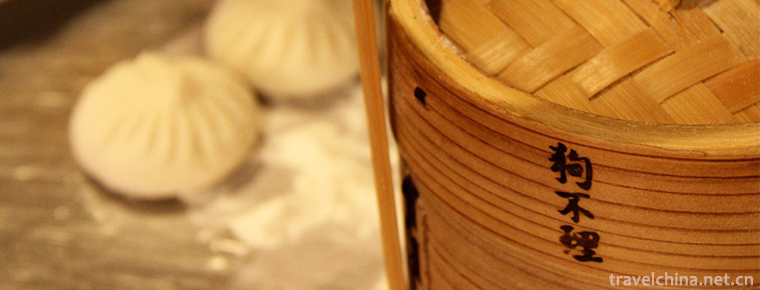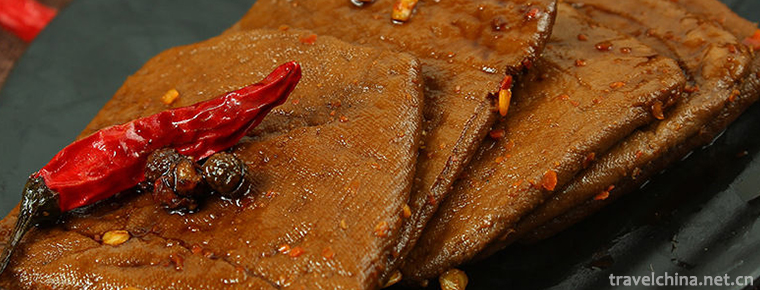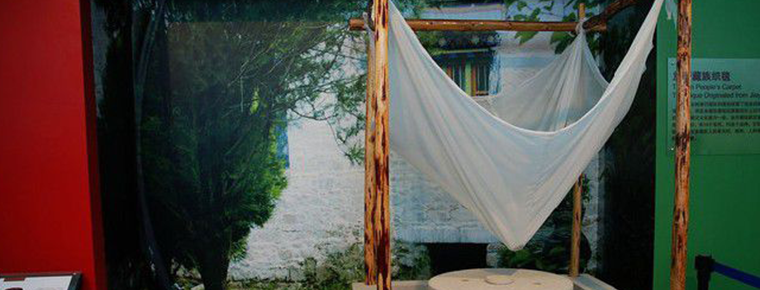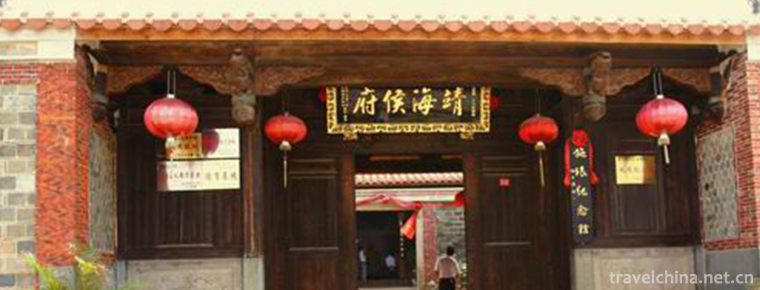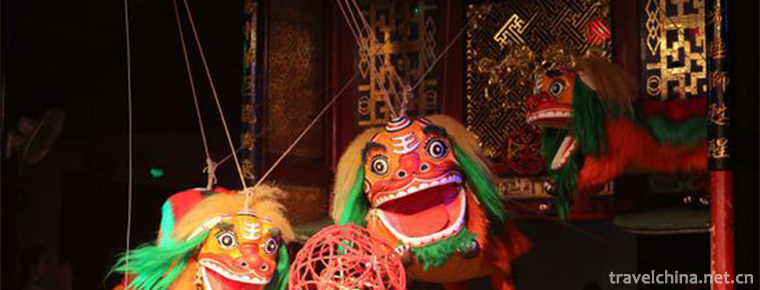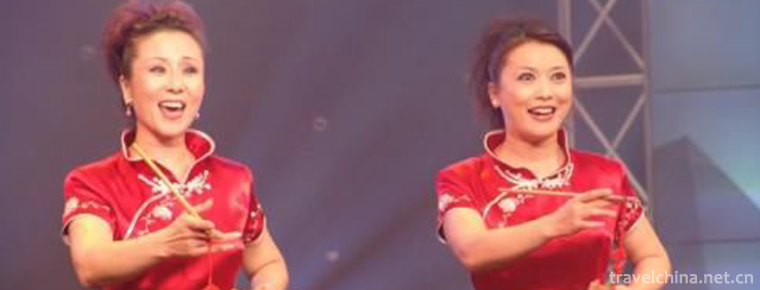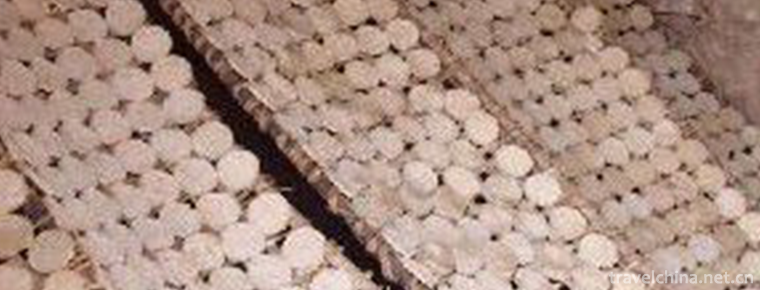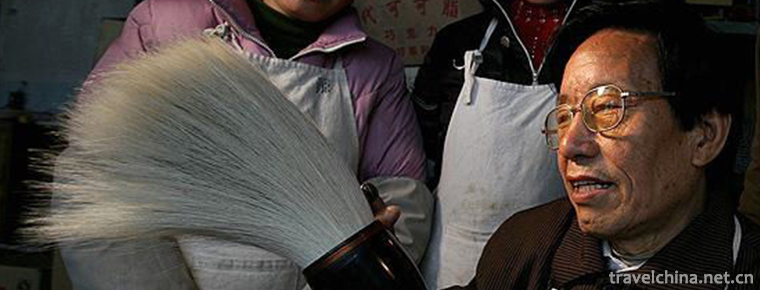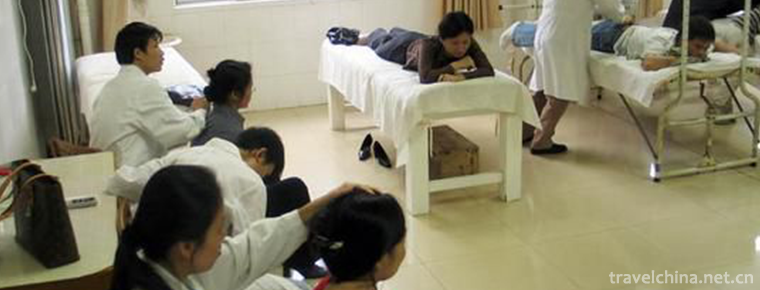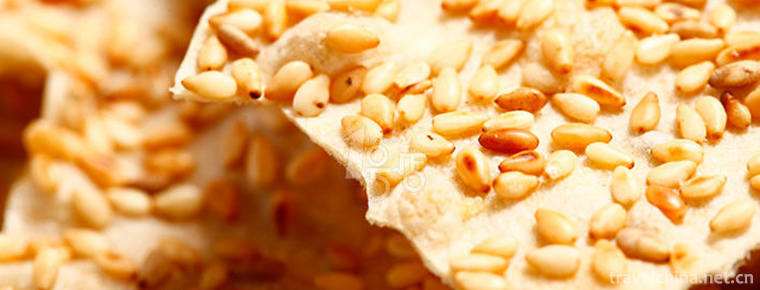Brocade song
Brocade song
Brocade song, formerly known as Gezi or Shijin song, is also called begging tune. It was named Jinge in 1953. This is a form of singing accompanied by instrumental music. It is one of the traditional folk songs in southern Fujian Province. It is popular in the plain area of southern Fujian, including Xiamen, Jinjiang and Longxi, as well as in the Chinese settlements of Taiwan Province and Nanyang Islands.
According to local historical records, Jinge was formed on the basis of regional folk songs and ballads in Southern Fujian in Song and Yuan Dynasties. It absorbed the nutrients of opera, Southern Opera and Southern Ci. It was blended by folk artists and spread in the vast rural areas of Southern Fujian. In the old society, when the countryside was depressed, the peasants flowed into the city, and the brocade songs also flowed into the city. The brocade singers sold along the street like beggars, so some people said it was a "beggar song". After liberation, Jinge also gained new life. The singing style of brocade songs can be roughly divided into two schools: hall and pavilion. Tang school is mainly spread in the countryside. It has a rough and powerful singing voice, accepts folk songs, and is good at singing "miscellaneous tunes". Its melody is flexible and varied, with the end of each sentence. The Pavilion School is popular in the city. Its singing is elegant, meticulous and clear-cut. There are many tunes in Nanqu, and its instruments and fingering are close to Nanqu.
On May 20, 2006, the opera was approved by the State Council and listed in the first batch of national intangible cultural heritage list.
Historical origin
The brocade songs of the Tang and Song Dynasties were initially formed, and the Ming Dynasty had a relatively complete stereotype. It comes from the folk, sings in dialect, and has a strong local flavor. The melody is fluent and plain, expressive, popular and healthy, easy to learn and understand, and loved by the masses. Many rural areas have "Gezi Band" and "Gezi Hall". After Jin Ge entered the city, it changed to Nanpipa, Dongxiao, Sanxian, Erxian and other musical instruments. The singing tune changed from lively, rough and bold to graceful and gentle, and the posture was comfortable. The name of the tune plate was changed from "Seven-Character Zizi" to "Four Empty", "Major" to "Five Empty" and "Beth". In singing, sometimes a few stanzas of Nanyue are inserted, which is called "Quduan". Rural areas still retain their original style, gradually forming three schools: rural areas, towns and the original Yueqin. The "pavilions" in towns include eight music chants, music chanting pavilions, Jixian Pavilion, Shengyin Garden and Jinde Society; the "pavilions" in rural areas include Qingfeng Hall, Qingxian Hall, Dongyin Hall, Jinyun Hall, Yidetang and Panhe Hall; the "yueqin" school includes Changtai, Huaan, Pinghe and the walking singing (begging tune) of blind artists and the "four-pronged tune" of Yunxiao.
In the late Ming and early Qing Dynasties, Jinge settled in Taiwan along with the people of southern Fujian. Still circulating in Taiwan are "Niu Li Song", "Sick Side Song" and "Tianwuwu". The music of Taiwanese Gezi Opera is a combination of local folk music on the basis of brocade songs. At the same time, brocade songs were also popular among immigrants in various parts of the South China Sea. In the 18th year of the Republic of China (1929), Zhangzhou brocade artists Chen Lishui, Lin Ting, Lai Yaoshan, Wang Qingji, Chen Jiaozao, Zhuya, Zhong Qing and Chen Bu were invited to perform in various parts of the South China Ocean. They also made more than 40 albums in Singapore Hindenburg Baidai Company. They sang "Chen Sanmo Mirror", "Chen Sansan", "Ann Tong Nao", "Shadowless Song", "Money Gambling Song", "Uncle Song", "Return to Caries by the Otter??
In 1950, there were more than 10 Jinge Clubs in Zhangzhou. The more famous ones were Longan Ying Jinge Club, Xiaxun Jinge Club, Xinqiao Jinge Club, Dongyue Jinge Club and Punan Jinge Club. In 1952, the Jin Opera Society was established in Shima, Longxi County to perform the opera Peacock Flying Southeast. In 1956 and 1978, at the invitation of China Records Company and Hong Kong Oriental Records Company, we produced records and recorded cassette tapes for distribution at home and abroad. In the early 1960s, the cultural departments organized efforts to excavate and record 26 brocade classics and more than 150 tunes by 1963. Since the reform and opening up, many new plays have been created, such as "Missing My Family", "Seeking My Ancestor", "Narcissus Love", "Taiwanese Grandma Watching Women's Volleyball" and "Mr. Qiao Huizhangzhou". They have participated in provincial and national literary and artistic performances and won many awards. In 1983, the new singer Wang Suhua went to Singapore to perform. In the 1980s, various local brocade song societies gathered and observed many times, strengthened artistic exchanges, and the brocade song performing arts continued to improve.
Inheritance significance
The brocade song repertoire, which has a long story, is called "Big Column". Some of the excerpts are "small folds", and there are one or two hundred traditional songs. With the passage of time, people's interest in brocade songs has become increasingly indifferent. The art of brocade songs is facing a crisis of possible extinction at any time and needs to be protected.
Zhangzhou brocade song is rooted in the folk people. Its melody is graceful and smooth, its lyrics are easy to understand, and it has a strong local flavor. Jinge is one of the oldest folk songs in southern Fujian. When Zheng Chenggong recovered Taiwan in the late Ming and early Qing Dynasties, he brought it to Taiwan, and combined it with local folk songs and tunes to form a "songboy". Therefore, experts believe that Jinge is the "old ancestor" of Gezi Opera. The close relationship between brocade songs and Taiwanese Gezi Opera has made brocade songs a colorful link connecting the hearts of people across the Taiwan Strait. The brocade song is the crystallization of wisdom created by the working people (singing artists) according to their respective ethnic regional characteristics, historical and cultural traditions, the pursuit of aesthetic ideals of the masses and local customs, language characteristics. It has a distinct artistic personality.
The state attaches great importance to the protection of intangible cultural heritage. On May 20, 2006, the opera was approved by the State Council and listed in the first batch of national intangible cultural heritage list.


-
Go BelieveGoubuli baozi
Goubuli steamed bun is a snack made of flour, pork and other materials. It was founded in 1858 (Xianfeng period of the Qing Dynasty). .
Views: 162 Time 2018-11-14 -
Five city tea driedWucheng Dried Tea
Wucheng Dried Tea, a specialty of Xiuning County, Anhui Province, is a national geographical indication product..
Views: 126 Time 2018-11-27 -
Production Techniques of Lhasa Jiami Water Mill
Jiami Water Mill was built in the 17th century A.D. It shows the outstanding ability of Tibetan people in mechanical manufacturing and grain processing. It makes full use of natural spring water to gr.
Views: 318 Time 2019-05-10 -
Construction Techniques of Traditional Residential Buildings in Southern Fujian
South Fujian residential building technology is a unique traditional architectural technology originating in Quanzhou, which began in Tang and Five Dynasties, is the mainstream of ancient architectura.
Views: 153 Time 2019-06-05 -
Ningde Huo Boy Line Lion
Ningde Huo children's lion is a traditional folk culture, which controls the lion's movement and expression through silk thread. Line lion is mainly pulled by head rope, tail rope and parotid rope, so.
Views: 73 Time 2019-06-08 -
Shandong drum
In addition to the book drum, the musical instruments of Shandong drum were initially beaten with two pieces of plough and plough, and then two pieces of iron and copper were used, accompanied by thre.
Views: 142 Time 2019-06-13 -
Soil alkali firing technology
On June 7, 2008, the soil-alkali firing system was approved by the State Council and listed in the second batch of national intangible cultural heritage list..
Views: 388 Time 2019-06-23 -
Xuanbi Production Skills
Xuanbi has a long history. Originated in the Qin Dynasty, it flourished in the Tang and Song Dynasties. At the end of Song Dynasty and the beginning of Yuan Dynasty, there were frequent wars, and the .
Views: 143 Time 2019-07-09 -
Bone setting therapy of traditional Chinese medicine
Bone-setting, traditional Chinese medicine refers to the treatment of fracture, dislocation and other diseases by pushing, pulling, pressing and pressing. Orthopaedics, as a specialty name, is a speci.
Views: 293 Time 2019-08-10 -
Zhou Cuns Baking Cake Making Skills
Zhou Cun's baking technology has a history of more than 1,800 years. According to Zizhi Tongjian, in the three years since Emperor Heng of Han Dynasty Yanxi, Hucai vendors have been exiled in Shandong.
Views: 289 Time 2019-08-10 -
Liubeichi Park
Liubeichi park is located at No.4 Minjiang East Road, Yibin City, with an area of 238.18 mu. It is a national AAAA tourist attraction. It is a famous scenic spot and a key Park in Sichuan Province..
Views: 149 Time 2020-10-16 -
General situation of Chengdu Giant Panda Base
According to the information on the base's official website in May 2017, Chengdu Research Base for giant panda breeding implements a three-level management mode of "Director Office Department (Center) - team". The director's office has 5 leading posts, including 1 Director and 4 deputy.
Views: 225 Time 2020-12-13
